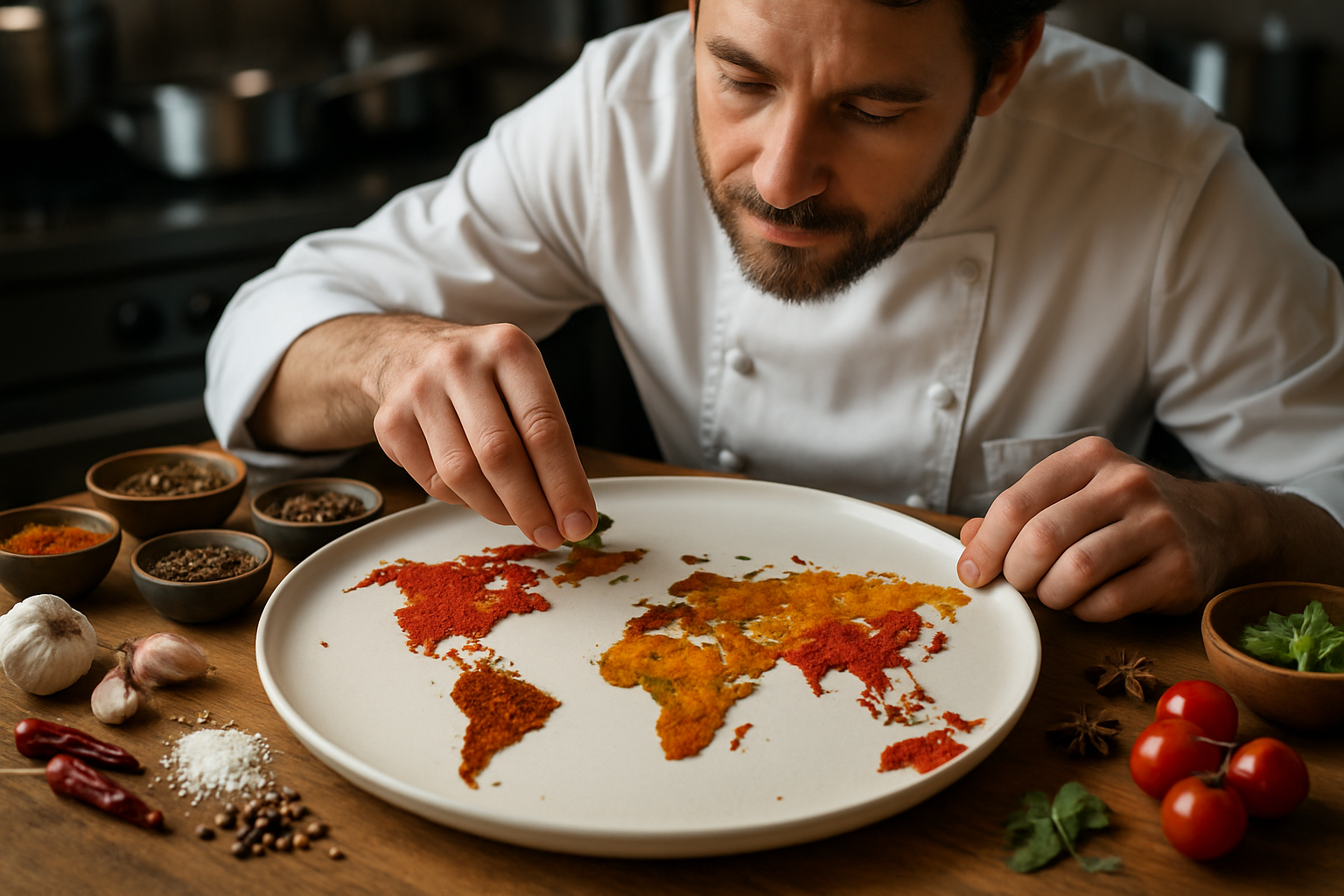Culinary Expeditions: Exploring Unique Gastronomic Adventures Around the Globe
The world of travel is increasingly intertwined with culinary exploration, as more travelers seek authentic, immersive experiences through food. This trend goes beyond simply tasting local cuisines; it encompasses a deeper dive into the cultural, historical, and social aspects of a destination's gastronomy. From foraging expeditions in remote forests to underground supper clubs in bustling cities, culinary expeditions are redefining the way we experience and remember our travels.

As interest grew, tour operators and local communities began offering more immersive food experiences. Cooking classes with local chefs, visits to traditional farms, and guided market tours became increasingly popular. This evolution has not only enriched the travel experience but has also contributed to the preservation of local food traditions and supported small-scale producers.
Beyond the Plate: Immersive Food Experiences
Modern culinary expeditions go far beyond simply eating at local restaurants. They offer travelers the chance to engage with food in unique and meaningful ways. For instance, truffle hunting in Italy’s Piedmont region combines the thrill of the hunt with the satisfaction of enjoying a prized delicacy. In Japan, travelers can participate in wasabi harvesting, learning about the plant’s cultivation and its significance in Japanese cuisine.
These experiences often involve meeting local producers, understanding sustainable farming practices, and learning about the cultural significance of certain ingredients or dishes. They provide a deeper understanding of a destination’s food ecosystem and the people who sustain it.
The Rise of Culinary Destination Hotels
A new trend in the hospitality industry is the emergence of culinary destination hotels. These establishments go beyond offering excellent on-site dining options; they make food the central focus of the guest experience. Some hotels have on-site farms where guests can harvest ingredients for their meals. Others offer immersive cooking workshops or host renowned chefs for special events.
For example, Blackberry Farm in Tennessee’s Smoky Mountains offers a farm-to-table experience where guests can participate in cooking demonstrations, cheese making, and even beekeeping. In Peru, Belmond Andean Explorer, a luxury sleeper train, takes guests on a gastronomic journey through the Andes, featuring regional dishes and ingredients at every stop.
Sustainable Gastronomy and Ethical Eating
As travelers become more conscious of their environmental impact, sustainable and ethical gastronomy is gaining prominence in culinary expeditions. This trend focuses on experiences that support local communities, preserve traditional food practices, and promote environmental conservation.
Initiatives like zero-waste cooking classes, visits to organic farms, and dining experiences that highlight indigenous ingredients are becoming increasingly popular. In countries like Costa Rica and New Zealand, travelers can participate in sustainable fishing trips, learning about ocean conservation while enjoying their catch prepared by local chefs.
Technology and Virtual Culinary Experiences
While nothing can replace the sensory experience of in-person culinary adventures, technology is opening up new possibilities for food-focused travel. Virtual cooking classes with chefs from around the world, augmented reality food tours, and AI-powered personalized culinary itineraries are emerging trends.
These technological advancements not only enhance the planning and execution of culinary expeditions but also allow travelers to continue their gastronomic explorations even when physical travel is not possible. They serve as a bridge between cultures and cuisines, fostering a global food community.
Savoring the Journey: Tips for Culinary Explorers
-
Research local food festivals and plan your trip around them for a truly immersive experience
-
Learn basic food-related phrases in the local language to enhance your interactions
-
Consider food allergies and dietary restrictions when planning your culinary adventures
-
Opt for small-group or private food tours for a more personalized experience
-
Don’t shy away from street food, but ensure it’s from reputable vendors
-
Keep a food journal or blog to document your culinary discoveries
-
Engage with local food experts or food historians for deeper insights into the cuisine
Culinary expeditions offer a unique lens through which to explore and understand the world. They provide a sensory journey that goes beyond mere sightseeing, allowing travelers to connect with local cultures in profound and memorable ways. As this trend continues to evolve, it promises to enrich the travel experience, support local communities, and foster a deeper appreciation for global cuisines and food traditions.






